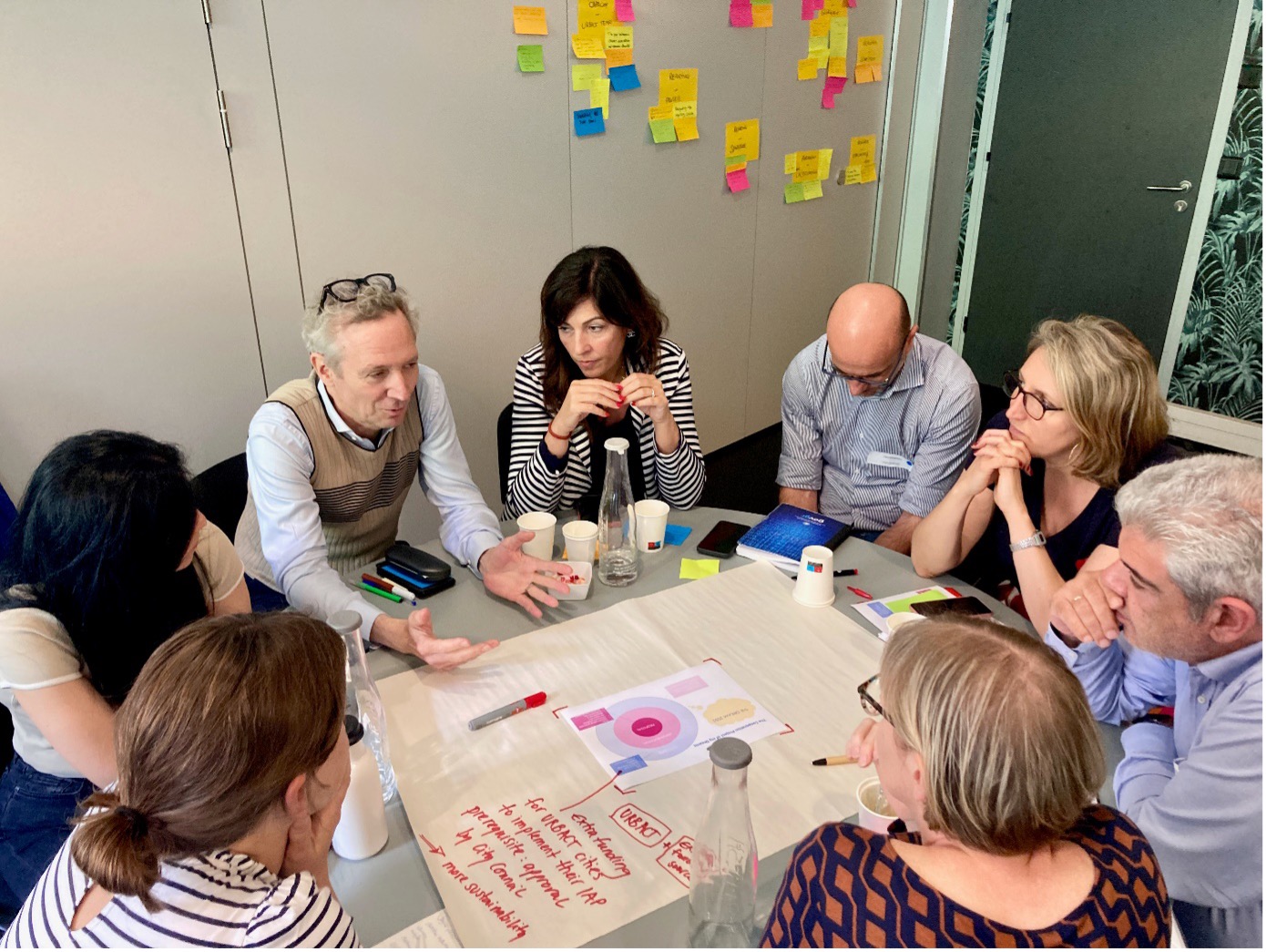Although the current URBACT programme is half-way through its implementation, discussions are already starting on the shape of what comes next. URBACT has always strived to respond closely to the needs of cities and has put in place a highly responsive process to gather them. To make a strong case for urban cooperation evolving in the right way, it’s important to have as many contributions as possible. This article details the process so far, and how you can get involved.
What URBACT can do for you
As an Interreg programme, URBACT implements Cohesion Policy at the local level by enabling cooperation and knowledge exchange amongst European cities. Organised within thematic networks to foster sustainable, inclusive, smart, and green urban development, URBACT supports local action combined with EU learning.
URBACT is contributing to the INTERREG consultation on the future of the Cohesion Policy and territorial cooperation from a local, urban perspective, starting with an online survey, which is running from 26 March to 31 July 2024.
The outcome of the consultation will not only evaluate the current programme’s performance but also shape the next URBACT programme and inform the future Cohesion Policy.
While the URBACT’s consultation is targeted to cities of any size to express their needs, it is also open to the general public. Cities, local authorities, experts, and citizens know best what they need to improve their cities, so it is important that URBACT shapes its future programme together through the survey.
What you can do for URBACT
The most important step any stakeholder of the URBACT programme can take is to complete the survey. Having a representative sample of cities, countries and organisations is essential to ensure that there is a legitimate basis for the needs analysis. In addition, while many challenges are shared across European cities, there are also regional specificities. The questions are open, to allow for nuanced reflections. Whether you have participated directly in an URBACT network or not, URBACT is keen to hear your opinion on:
Do you think it is important that your city is working together with other cities from all over Europe to make cities better?
What are the hot topics in your city on which you would like to exchange and share knowledge with other European cities?
Where do you see the biggest potential in your city to increase know-how and improve actions by exchanging knowledge and good practices with other European cities?
And of course, if you have taken part in an URBACT network, you can share what was most valuable about it.
The voice of experience

Discussion rounds among URBACT lead partners during URBACT Lead Partner-Lead Expert meeting, Paris. Credits: URBACT
To enrich the results of the survey, URBACT has started a series of consultation events and discussion rounds in the course of the summer 2024 to target a varied group of stakeholders, from city representatives to citizens, especially the youth.
One of these consultation events took place during the URBACT Lead Partner-Lead Expert (LP-LE) meeting on 15 – 16 May 2024. The event consisted of a 45-minute interactive discussion with around 30 representatives of URBACT lead partners, the leading city of an URBACT network. Participants were asked to imagine, in groups, the cooperation project of their dreams, as a playful and positive-thinking way to pose questions about the future of the URBACT programme.
The purpose of the exercise was to collect creative answers for the following questions:
• What would be the cooperation project of your dreams?
• What is the most important novelty that you would like to see in the future URBACT?
• Are there things you would like to do with URBACT but cannot? Why?
To close the discussion, participants each shared one “brilliant idea” for their cooperation projects. In general, these ideas highlighted the benefit of learning directly on the ground with local experts, visiting other cities to learn from front-runners’ concrete examples and successful stories and strengthening European identity and belonging. It was also the moment to identify some challenges - such as the administrative burden and language barriers - and opportunities like travel and exchange as a source of inspiration for urban sustainable development.
What is coming next?
The survey will be open until 31 July and the accompanying consultation events will continue throughout the summer 2024 targeting different audiences on separate occasions.
The next consultation event will take place at the URBACT Monitoring Committee meeting on 27-28 June in Ghent (BE).
The consultation findings, including the written results of the survey and the more qualitative oral and visual material from the accompanying activities will be collected throughout the summer by URBACT to be analysed and gathered in a report, which will be presented first to the URBACT Monitoring Committee in the autumn, and then to the European Commission. The first findings of the INTERREG consultation will be shared with the public in a specific INTERREG harvesting event in Brussels in November 2024.
The INTERREG stakeholder consultation 2024
The European Commission has invited all European Territorial Cooperation Programmes, including URBACT to join the INTERREG consultation 2024 on the future Cohesion policy (post 2027), its regional policy which aims to reduce the disparities between Europe’s regions through cooperation and provides support to each region to foster their development.
The findings of the consultation and first ideas for the future Cohesion policy will be presented to the large public at a dedicated event in Gorizia/Nova Gorica (SL/IT) in spring 2025.
Based on the findings, the European Commission will develop a proposal for the future European Cohesion Policy (post 2027), which will be shared and discussed with the European Parliament and the European Council for adoption.
Have your say
This is, if still needed, a reminder that your voice is heard and needed to shape together the future of URBACT, and is a call to action to contribute to the reflection process for the future of Europe’s territorial cooperation and represent the interests of your city and your country in Europe! We can only shape a better future if you share your needs to improve people’s quality of life and well-being.


